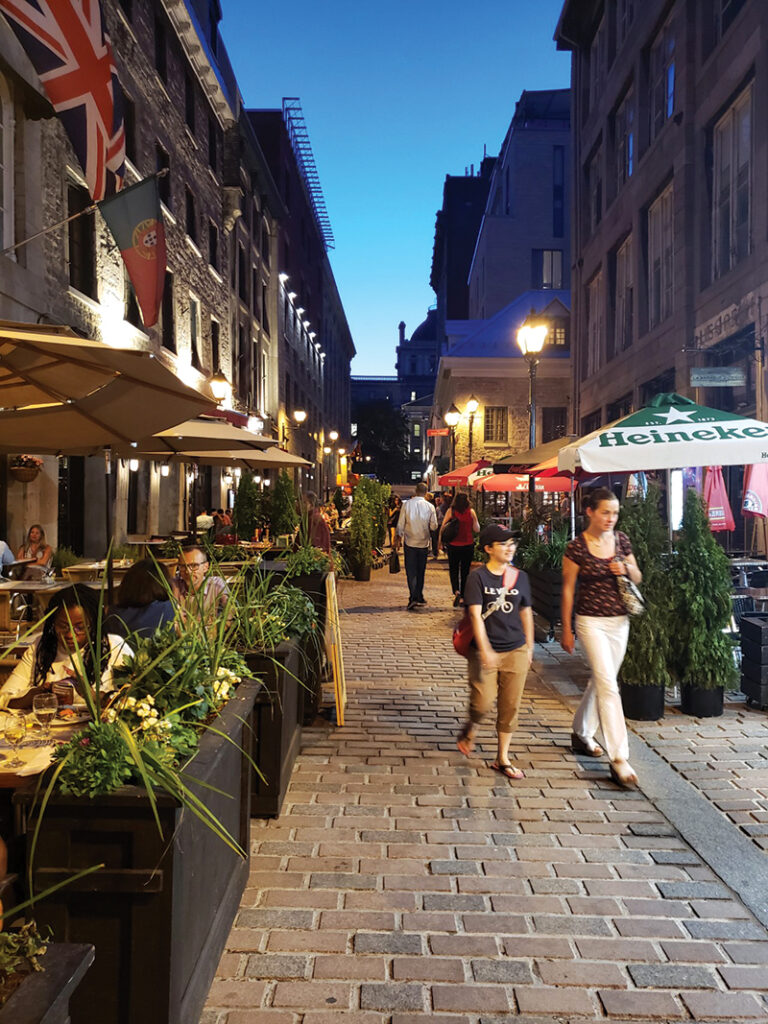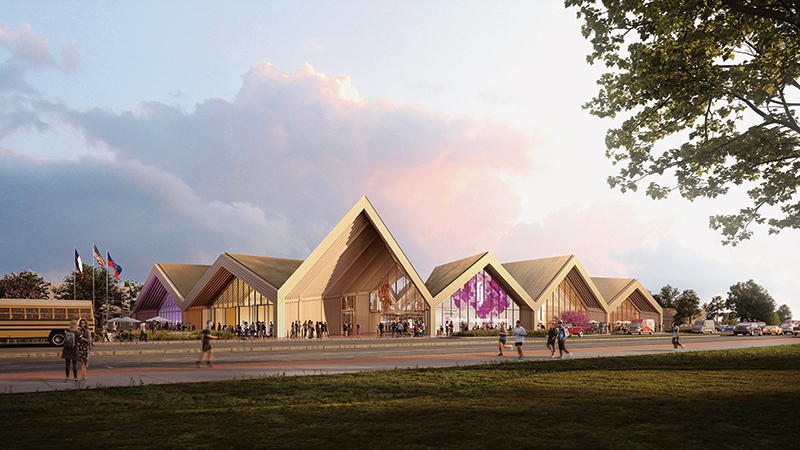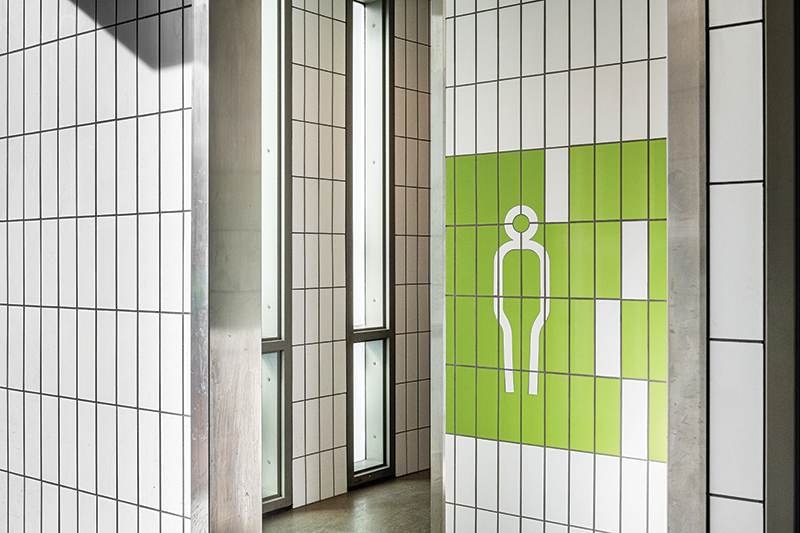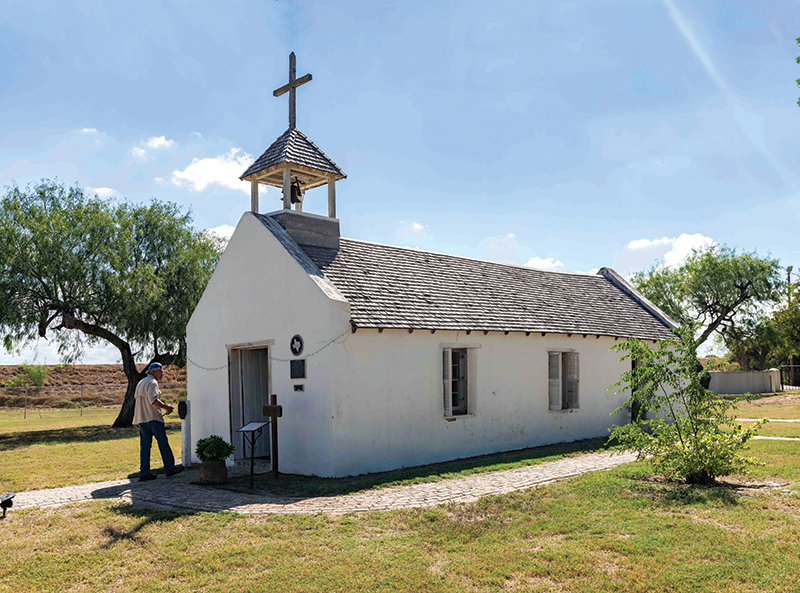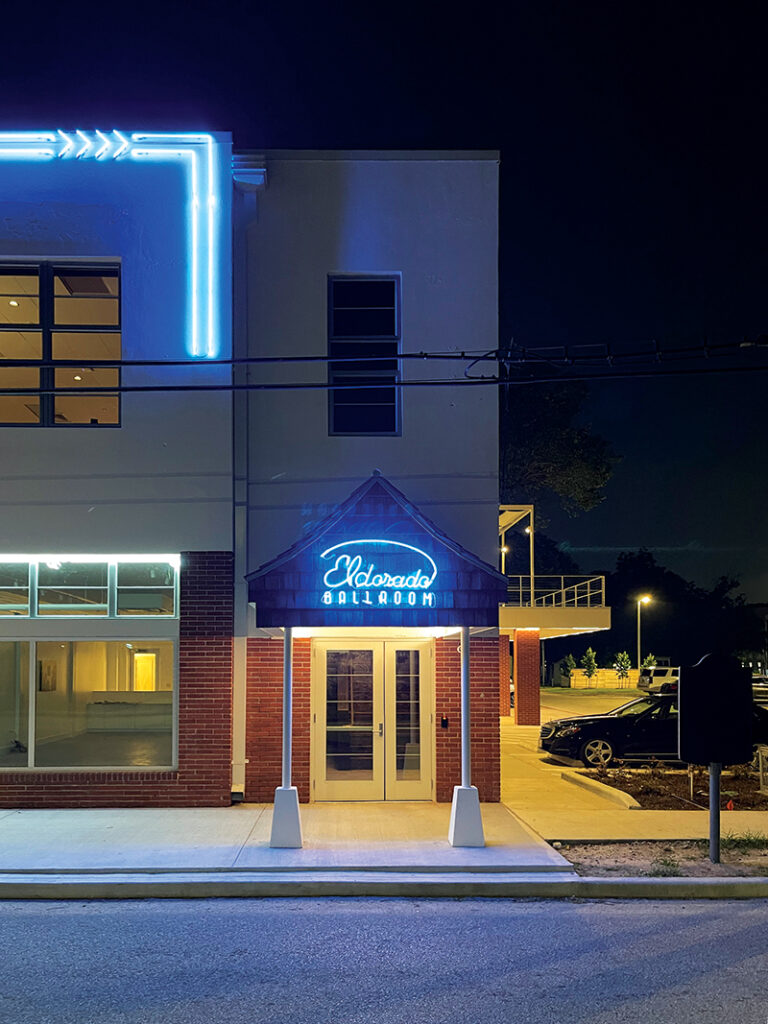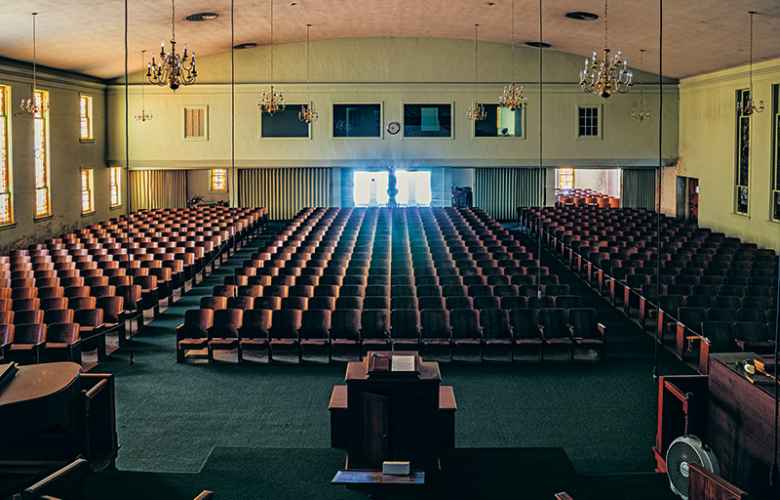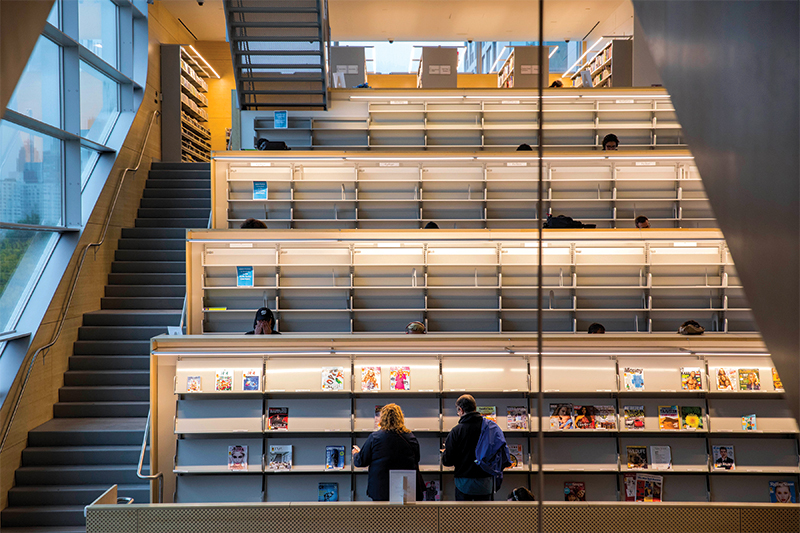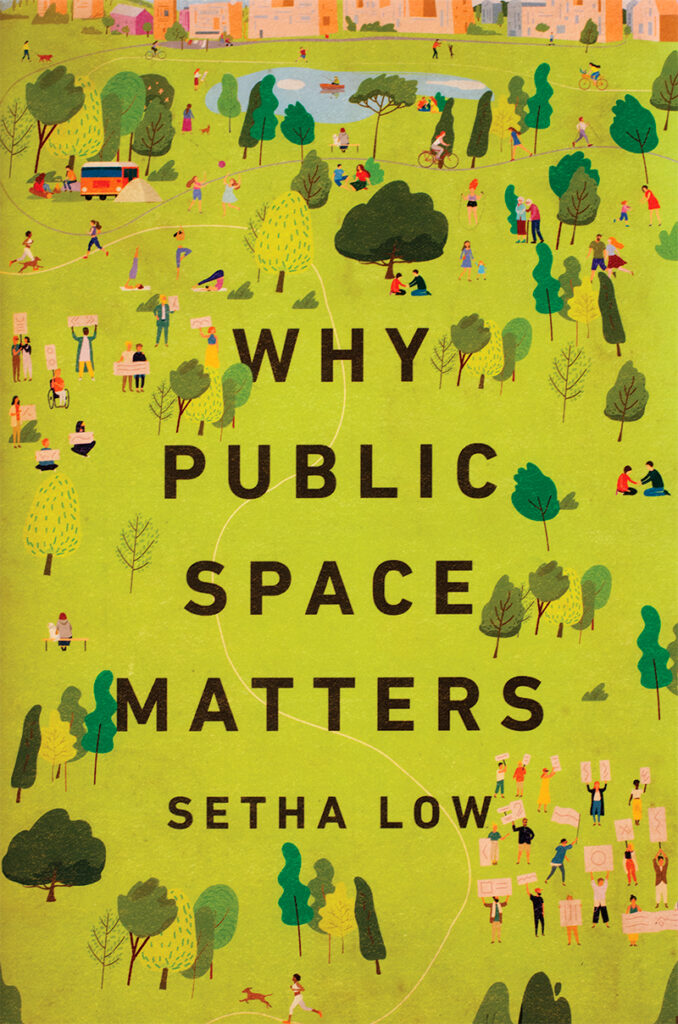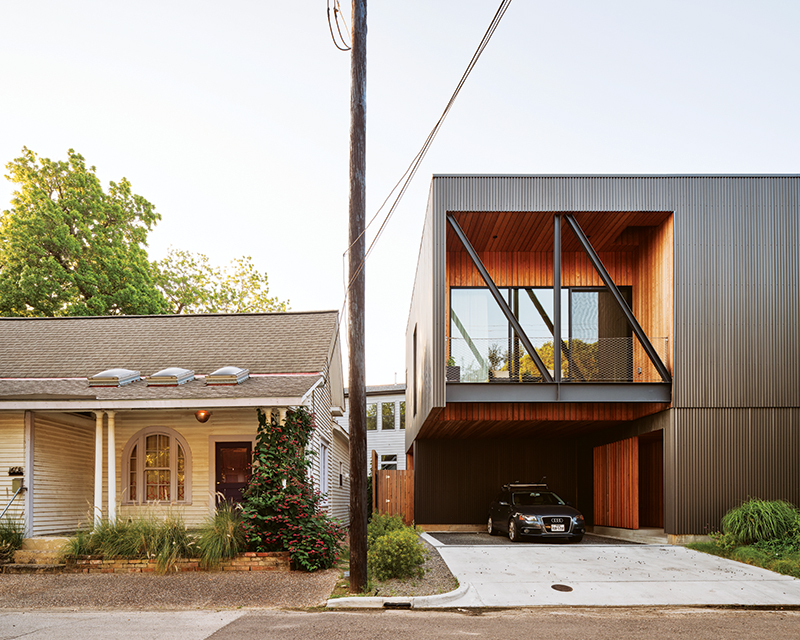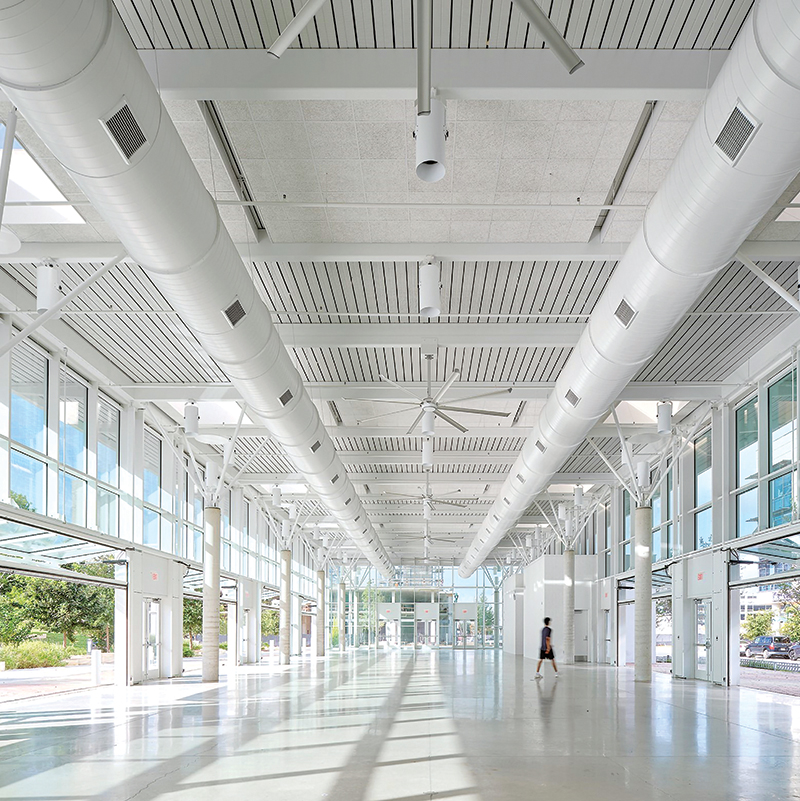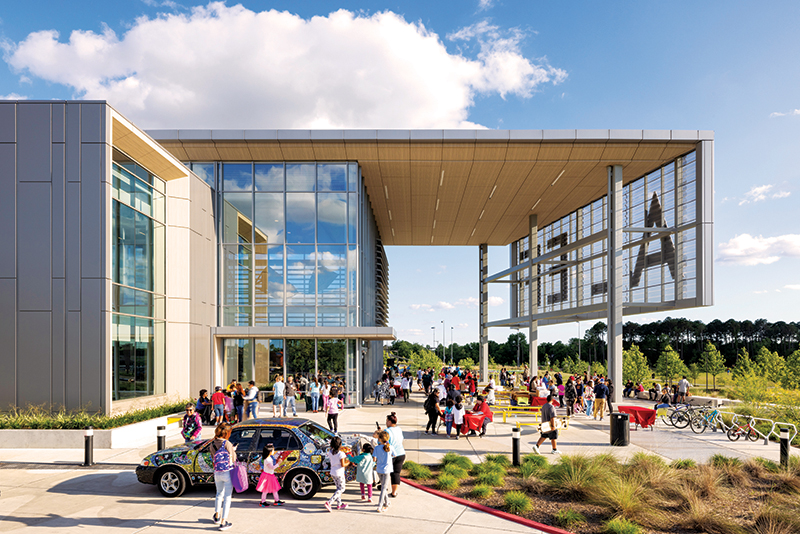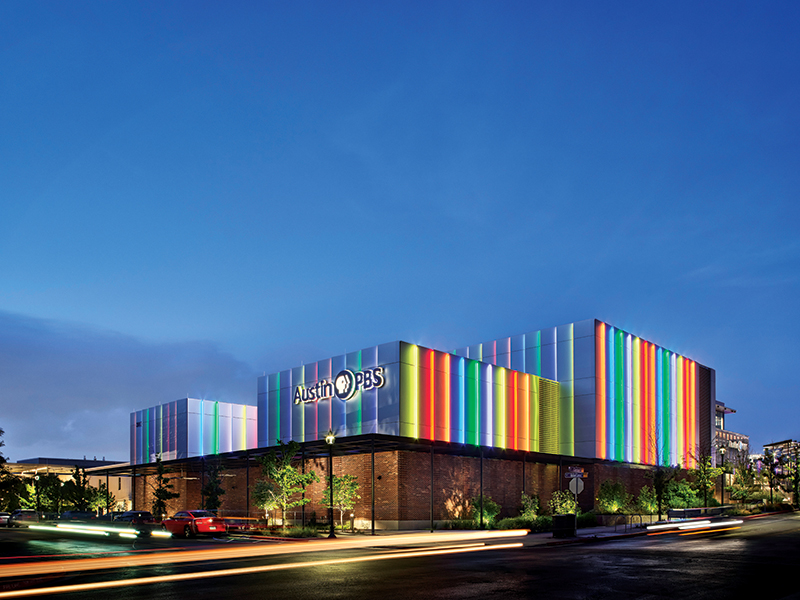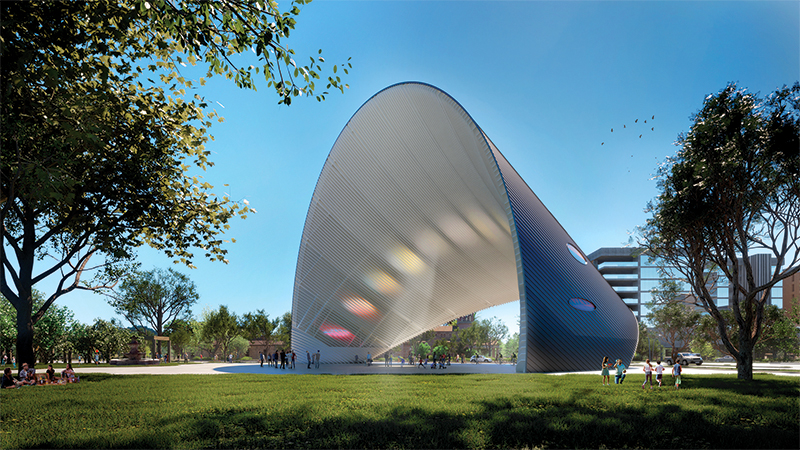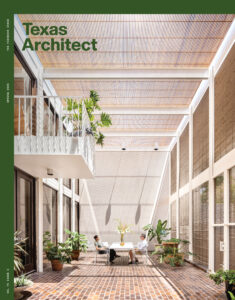
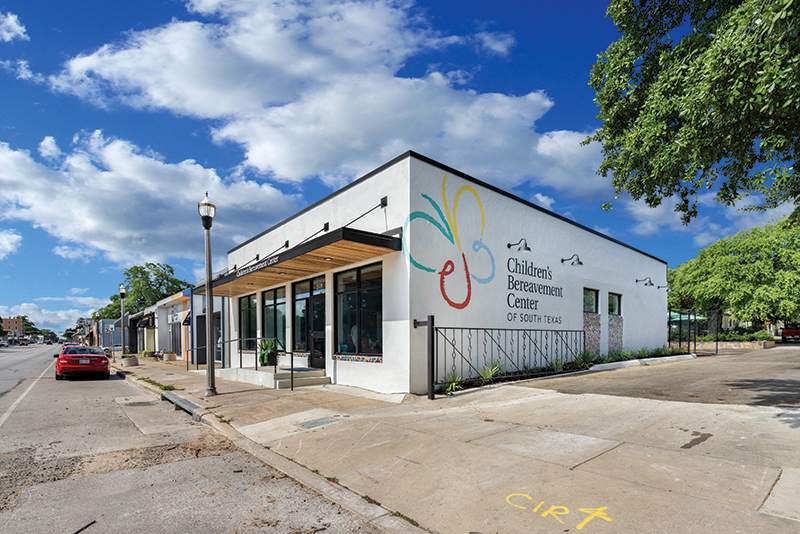
Children’s Bereavement Center of South Texas Celebrates Opening in Uvalde
Getty Street in Uvalde is bustling. Families gather on the street expectantly. It is June 29, 2023, the day of the ribbon-cutting ceremony for the Children’s Bereavement Center of South Texas — the first facility of its kind in Uvalde as well as in West Texas. A group of children line up along the stage carrying a bright blue ribbon while the mayor shares a hopeful message. The children all have smiles on their faces as they cut the ribbon together and the Children’s Bereavement Center is officially declared “Open!” The crowd erupts in cheers and whistles. Finally, Uvalde will have access to much-needed mental health services and resources, stirring the hope that this community will one day heal.
More than a year has passed since tragedy struck Uvalde, when a gunman took the lives of 19 children and two teachers at Robb Elementary School. The school has been retired, but members of the community still carry the trauma of this event. Surrounding cities have provided every kind of support they can in the aftermath. However, mental health services have always been in short supply in this area, particularly for youth and children.
The Children’s Bereavement Center (CBC) of South Texas has been a leader in the realm of mental health services for children for more than 25 years. The organization first began operating out of the trunk of a car. The trunk was filled with toys, brought to children in difficult situations in hospitals and homes to provide some reprieve from anxiety through entertainment. Over time, the organization grew into a brick-and-mortar facility in San Antonio that offers counseling services and various forms of therapy geared toward healing children and families. As of 2022, the CBC had facilities in San Antonio, Southerland Springs, and McAllen due to high demand and widespread need for these services. On May 24, 2022, within hours of the shooting in Uvalde, the CBC deployed resources to serve Uvalde and initiated plans to get a brick-and-mortar facility up and running there to provide the mental health services that the community now desperately needed.
Randy Smith, CEO of the San Antonio development firm Weston Urban, and Jonathan Card, AIA, founding principal Card & Company Architects, were quickly engaged to evaluate potential sites and develop a concept design for the facility. Both are committed to the CBC’s mission and purpose and provided their services pro-bono. In collaboration with the CBC, a site was selected at 319 N. Getty St., in the heart of Uvalde’s downtown. The site and its existing building were donated for the cause by St. Philip’s Episcopal Church, which sits on an adjacent lot.
The Uvalde facility is smaller than the CBC’s other centers, so it was important to leverage shared resources, such as the church’s fellowship hall, additional meeting spaces, a playground, and additional parking. It was also important that the new facility feel welcoming for everyone, including those who may not be comfortable in churches. “What’s really interesting about this site is how it’s public-facing on Getty Street,” says Jonathan Card. “It has its own storefront and identity, but it’s also directly adjacent to a church with a back door to the church courtyard.”
Once the site was selected, Card and Company swiftly developed a concept design package to raise funds for the project. From there, Ford, Powell, and Carson of San Antonio volunteered to serve as architect of record. Moving at lightning speed, FPC turned Card and Company’s concept design package into a permit set in a single month. Hector Machado, AIA, the senior associate at FPC who led the project during this phase, noted, “Everyone was very pressed to try to get this building open as quickly as possible.”
Even with the short timeline, the quality of the future space remained a high priority. Across CBC’s various centers, the design ethos has always been to make interior spaces feel inviting, calming, familiar, and secure — like a home away from home. “In many of their facilities,” says Card, “the CBC’s design challenge has been to take a commercial space and essentially ‘de-institutionalize’ it using furniture, finishes, and lighting that have a more residential feel.” Counseling spaces in the new center are designed to feel like living rooms, and several other activity rooms are designed for play therapy. All treatment rooms have windows with access to natural light, which can improve comfort and mood. Linda Fugit, a board member and longtime friend of the CBC, has served as the organization’s de facto interior designer for decades. “Linda’s contributions are a huge part of why these centers have a warm, disarming feel that the center has become known for,” Card explains.
While operating out of a temporary facility in Uvalde in the months after the shooting, CBC staff discovered new challenges that needed to be tackled. Following the shooting, some clients were alarmed by the sound of a door opening elsewhere in the building. To address this concern, the new center was designed to provide greater acoustic separation between rooms. Others became anxious when someone walked by a window, so the new center installed all bullet-proof glazing. “The center wanted to ensure that clients felt safe and secure at all times so they could refocus their attention on the work required to heal,” says Machado.
As construction began, the CBC received an outpouring of support. “Everyone wanted to help,” says Hector Machado. “A variety of types of donations, such as material, labor, and services, came together to make this project happen.” Many of these donations were unanticipated and required the project team to be adaptable to leverage all that this community was willing to give. Card notes that while managing a tight schedule that required a fair amount of improvisation, “Ford, Powell & Carson was able to deliver a building from concept through construction that closely aligns with the CBC’s brand, image, and values.”
On opening day, the CBC, the project team, and the community had many reasons to be hopeful. The new center has the potential to catalyze the healing process for many struggling children and families. Since opening day, the CBC has served more than 300 children, parents, and teachers with counseling, support groups, and grief camps. “The CBC has been very well received and greatly appreciated,” says Machado. In committing to building a brick-and-mortar center in Uvalde, the CBC has made a long-term commitment to helping these children and families manage both short and long-term challenges associated with grief and trauma.
Reflecting on the project, Card shares: “It has been a real privilege to be able to contribute our skills as architects to serve. Projects like these are an important reminder that the work we do as architects really matters and can impact people in a profound way.” Machado adds, “We can only hope that our small contributions to this project will create momentum leading to enormous positive impact for Uvalde.”
Allison Peitz, AIA, is an architect at Lake|Flato Architects in San Antonio.
Also from this issue

